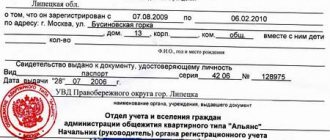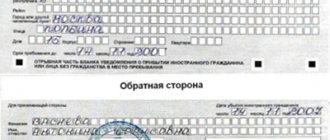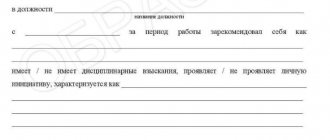It’s no secret that quite large fines have been established for violating the labor legislation of the Russian Federation, and in case of repeated violation, the organization’s activities may be suspended and the manager will be disqualified. Employers and HR specialists are concerned with the question: how to conclude an employment contract with an employee in order to avoid pitfalls, break anything, and avoid fines and other troubles?
To solve the problem, you must first of all know what norms govern this issue.
Mandatory details and terms of the employment contract are given in Art. 57 of the Labor Code of the Russian Federation, and the list of documents presented when applying for a job in Art. 65 Labor Code of the Russian Federation. The list of cases in which a fixed-term employment contract can be concluded is given in Art. 59 of the Labor Code of the Russian Federation, in all other cases an employment contract is concluded for an indefinite period.
The position of foreign citizens in Russia and the procedure for their employment are regulated by Federal Law No. 115-FZ dated July 25, 2002 and Chapter. 50.1 Labor Code of the Russian Federation. The hiring procedure and the list of documents depend on the status of foreign citizens in the Russian Federation: temporarily staying, temporarily residing, and permanently residing. A separate procedure applies to highly qualified specialists.
When drawing up an employment contract, it is necessary to take into account that the norms of labor legislation also apply to foreigners applying for work in the territory of the Russian Federation, while the employment contract with them has a number of features (Chapter 50.1, Article 327.1 of the Labor Code of the Russian Federation).
What is it and how is it different from a workplace?
An employment contract must contain mandatory information in accordance with Article 57 of the Labor Code of the Russian Federation, and one of the points is the place of work.
It is not entirely clear how it differs from a worker. In order not to confuse the concepts, we remember: the first is the company in which the employee works, the second is the workshop, site, office, office, and so on, that is, a specific indication where job responsibilities are performed.
Here is an example of how to indicate the place of work in an employment contract:
“The Employee’s place of work is Fakel LLC.”
In what language should you conclude a contract with a foreigner?
When concluding an employment contract with a foreign worker, questions arise:
- whether the employer must draw up/translate the employment contract into his native or understandable language;
- What is the established liability for lack of translation?
The official language of our country is the Russian language and provides for mandatory use throughout the territory of Russia (Article 68 of the Constitution of the Russian Federation, paragraph 2 of Article 1 of Law No. 53-FZ dated 01.06.2005). The Labor Code of the Russian Federation does not contain requirements for concluding an agreement in a foreign language (Article 56, Chapter 50.1 of the Labor Code of the Russian Federation).
Liability and penalties for the lack of translation of the text of an employment contract are not established by the legislation of the Russian Federation. On this issue, Rostrud officials explained that an employment contract with a foreigner is concluded in Russian, and, if necessary, can be translated into a language understandable to a foreign citizen.
An employment contract with a foreign worker must be concluded in Russian; in addition, a translation can be made in a language understandable to a foreign citizen. There are no penalties.
Is it possible not to write a specific address?
The Labor Code does not oblige you to indicate the location of the workspace, and what a place of work is cannot be immediately defined in an employment contract. Confusion ensues. But it is enough to enter the name of the organization. This is an indication of where the employee works. But the address is an additional condition, which means it is not necessary to write it. But difficulties arise if it is necessary to confirm the fact of absenteeism - it is difficult to prove where exactly the employee should have been.
The address is a specification of the work location, but is the place of work required in the employment contract? Yes, this condition must be present in the document.
Employee from EAEU countries
For citizens of the EAEU member countries, a simplified procedure for hiring has been established (clauses 1, 3, article 97, clause 10, article 98 of the Treaty on the EAEU):
- no need to obtain a patent to work in Russia;
- income is subject to personal income tax at a rate of 13% from the first day of work in the Russian Federation;
- educational documents are recognized on the territory of the Russian Federation without special procedures.
Please note that the employer must notify the territorial department for migration issues of the Ministry of Internal Affairs of Russia about the conclusion (termination) of an employment or civil law contract with an employee from the EAEU countries. Violation may result in administrative liability under Part 3 of Art. 18.15 Code of Administrative Offenses of the Russian Federation.
When hiring EAEU citizens, the employer has the right not to take into account the restrictions established by the Government of the Russian Federation on the permissible share of foreign workers (Clause 1, Article 97 of the Treaty on the EAEU).
Formulation for a shift worker
Shift work is usually associated with remote regions, where it is not so easy to get to, the location of the facility often changes. It is important to indicate the region, especially if it is located in the Far North or equivalent regions, since labor in these conditions requires certain guarantees.
Here is an example of how to register a workplace in an employment contract so that the document complies with the requirements of the law:
“The Employee’s place of work is the construction sites of Stroy-Vector LLC in the Krasnoyarsk Territory.”
New notification forms from January 1, 2021
Since 2021, Order of the Ministry of Internal Affairs of Russia dated July 30, 2021 No. 536 has approved new forms of notifications related to the work activities of foreign citizens in the Russian Federation:
- on concluding an employment or civil contract (hereinafter referred to as the CPA) with a foreign worker;
- on termination (termination) of an employment or civil contract agreement;
- on the fulfillment by employers/customers of obligations to pay remuneration (salary) to a foreigner (stateless person) - a highly qualified specialist;
- on the employment of a foreigner (stateless person) by an organization that provides services for the employment of foreign citizens in the territory of the Russian Federation.
From January 1, 2021, notifications must be submitted using new forms; documents using the old form will not be accepted. In this case, the employer faces liability for failure to notify the migration service or notification in violation of the procedure, deadline and form of notification for which administrative liability is provided for in Part 3 of Art. 18.15 Code of Administrative Offenses of the Russian Federation.
Legal entities face fines of up to 1 million rubles for non-compliance with migration legislation!
Entries in the employment contract for drivers (traveling nature of work)
How to determine a place of work for those who never sit still? Train drivers, drivers, couriers - all these and many other workers sign a contract with the condition of traveling work. Along with this condition, determine in which city or region your employee works.
For example:
“The Employee’s place of work is Vympel LLC, St. Petersburg. The work is of a traveling nature, trips are carried out within the Leningrad region.”
Rules of user conduct on the site
Parts 1 and 2 of Article 57 of the Labor Code of the Russian Federation:
The employment contract specifies:
- last name, first name, patronymic of the employee and name of the employer (last name, first name, patronymic of the employer - an individual) who entered into an employment contract;
— information about documents proving the identity of the employee and the employer - an individual;
— taxpayer identification number (for employers, with the exception of employers - individuals who are not individual entrepreneurs);
— information about the employer’s representative who signed the employment contract, and the basis on which he is vested with the appropriate powers;
— place and date of conclusion of the employment contract.
The following conditions are mandatory for inclusion in an employment contract:
- place of work, and in the case when an employee is hired to work in a branch, representative office or other separate structural unit of the organization located in another area - place of work indicating the separate structural unit and its location;
— labor function (work according to the position in accordance with the staffing table, profession, specialty indicating qualifications; specific type of work assigned to the employee). If, in accordance with the Labor Code of the Russian Federation, other federal laws, the performance of work in certain positions, professions, specialties is associated with the provision of compensation and benefits or the presence of restrictions, then the names of these positions, professions or specialties and the qualification requirements for them must correspond to the names and requirements specified in qualification reference books approved in the manner established by the Government of the Russian Federation, or the relevant provisions of professional standards;
- the date of commencement of work, and in the case where a fixed-term employment contract is concluded - also its validity period and the circumstances (reasons) that served as the basis for concluding a fixed-term employment contract in accordance with the Labor Code of the Russian Federation or other federal law;
— conditions of remuneration (including the size of the tariff rate or salary (official salary) of the employee, additional payments, allowances and incentive payments);
— working hours and rest hours (if for a given employee it differs from the general rules in force for a given employer);
— guarantees and compensation for work under harmful and (or) dangerous working conditions, if the employee is hired under appropriate conditions, indicating the characteristics of working conditions in the workplace;
- conditions that determine, in necessary cases, the nature of the work (mobile, traveling, on the road, other nature of work);
— working conditions in the workplace;
— a condition on compulsory social insurance of the employee in accordance with the Labor Code of the Russian Federation and other federal laws;
— other conditions in cases provided for by labor legislation and other regulatory legal acts containing labor law norms.
Part 1 of Article 294 of the Labor Code of the Russian Federation:
The condition regarding the seasonal nature of the work must be specified in the employment contract.
Part 2 of Article 303 of the Labor Code of the Russian Federation:
A written employment contract must include all conditions essential for the employee and the employer.
Article 327.2 of the Labor Code of the Russian Federation:
Along with the information provided for in part one of Article 57 of the Labor Code of the Russian Federation, an employment contract with an employee who is a foreign citizen or stateless person shall indicate information about:
- a work permit or patent issued in accordance with the legislation on the legal status of foreign citizens in the Russian Federation (hereinafter referred to as a work permit or patent), except for cases established by federal laws or international treaties of the Russian Federation, - when concluding an employment contract with a temporary staying in the Russian Federation as a foreign citizen or stateless person;
— a temporary residence permit in the Russian Federation, issued in accordance with the legislation on the legal status of foreign citizens in the Russian Federation (hereinafter referred to as a temporary residence permit), except for cases established by federal laws or international treaties of the Russian Federation, when concluding an employment contract with a foreign citizen or stateless person temporarily residing in the Russian Federation;
- a residence permit issued in accordance with the legislation on the legal status of foreign citizens in the Russian Federation (hereinafter referred to as the residence permit), except for cases established by federal laws or international treaties of the Russian Federation, - when concluding an employment contract with permanent residents of the Russian Federation a foreign citizen or stateless person.
Along with the conditions provided for in part two of Article 57 of the Labor Code of the Russian Federation, mandatory for inclusion in an employment contract with an employee who is a foreign citizen or stateless person temporarily staying in the Russian Federation, except for cases established by federal laws or international treaties of the Russian Federation, is the condition indicating the grounds for providing such an employee with medical care during the term of the employment contract, including details of a voluntary health insurance agreement (policy) or an agreement concluded by the employer with a medical organization on the provision of paid medical services to such an employee. A voluntary health insurance agreement (policy) or an agreement concluded by an employer with a medical organization on the provision of paid medical services to an employee who is a foreign citizen or stateless person must ensure the provision of primary health care and specialized medical care to such an employee in an emergency manner.
Parts 1, 5 – 7 of Article 341.2 of the Labor Code of the Russian Federation:
An employment contract concluded by a private employment agency with an employee sent temporarily to work for the receiving party under an agreement on the provision of labor for workers (personnel) must include a condition that the employee, by order of the employer, perform the labor function specified in the employment contract in the interests, under the management and control of an individual or legal entity who is not an employer under this employment contract.
When sending an employee to work for the receiving party under an agreement on the provision of labor for workers (personnel), the private employment agency and the employee enter into an additional agreement to the employment contract indicating information about the receiving party, including the name of the receiving party (last name, first name, patronymic of the receiving party - an individual ), information about documents proving the identity of the receiving party - an individual, the taxpayer identification number of the receiving party (with the exception of the receiving party - an individual who is not an individual entrepreneur), as well as information about the place and date of conclusion, number and validity period of the agreement on the provision labor of workers (personnel).
If, during the period of validity of the employment contract, a private employment agency sends an employee to work for another receiving party under another contract for the provision of labor for workers (personnel), the private employment agency and the employee enter into a new additional agreement to the employment contract indicating information about the receiving party, provided for in part five of this article.
Additional agreements to the employment contract specified in parts five and six of this article are an integral part of the employment contract, are concluded in writing, drawn up in two copies, each of which is signed by the parties. One copy of the additional agreement is given to the employee, the other copy is kept by the employer. The employee’s receipt of a copy of the additional agreement must be confirmed by the employee’s signature on the copy of the additional agreement kept by the employer.
Parts 3 and 4 of Article 348.2 of the Labor Code of the Russian Federation:
In addition to the conditions established by part two of Article 57 of the Labor Code of the Russian Federation, the following conditions are mandatory for inclusion in an employment contract with an athlete:
— the employer’s obligations to ensure the conduct of training events and the participation of the athlete in sports competitions under the guidance of a coach (coaches);
— the athlete’s obligations to comply with the sports regime established by the employer and carry out preparation plans for sports competitions;
— the athlete’s obligation to take part in sports competitions only at the direction of the employer;
— the athlete’s obligations to comply with all-Russian anti-doping rules and anti-doping rules approved by international anti-doping organizations, and undergo doping control;
— the athlete’s obligation to provide information about his whereabouts in accordance with all-Russian anti-doping rules for the purpose of doping control;
— provision by the employer of life and health insurance for the athlete, as well as medical insurance in order for the athlete to receive additional medical and other services in addition to those established by compulsory medical insurance programs, indicating the conditions of these types of insurance.
In addition to the conditions established by part two of Article 57 of this Code, a mandatory condition for inclusion in an employment contract with a coach is the condition on the coach’s obligation to comply with all-Russian anti-doping rules and anti-doping rules approved by international anti-doping organizations, to take measures to prevent violation of these anti-doping rules by the athlete (athletes).
Part 14 of Article 13.2 of the Federal Law of July 25, 2002 N 115-FZ “On the legal status of foreign citizens in the Russian Federation”:
A highly qualified specialist and members of his family who arrived in the Russian Federation who are foreign citizens must have a medical insurance agreement (policy) valid on the territory of the Russian Federation or must have the right, on the basis of a corresponding agreement concluded by the employer or customer of work (services) with a medical organization, to receiving primary health care and specialized medical care. Providing the specified guarantees for a highly qualified specialist and members of his family to receive the specified medical care during the validity period of an employment contract or a civil law contract for the performance of work (rendering services) concluded with this highly qualified specialist is a mandatory condition of the said employment contract or an essential condition of the said civil law contract to perform work (render services).
Part 27 of Article 30 of the Federal Law of 05/08/2010 N 83-FZ “On amendments to certain legislative acts of the Russian Federation in connection with improving the legal status of state (municipal) institutions”:
A public authority (state body), a local government body exercising the functions and powers of the founder of a budgetary institution, when concluding an employment contract with the head of a budgetary institution, stipulates in it:
1) rights and obligations of the manager;
2) indicators for assessing the effectiveness and efficiency of its activities;
3) terms of remuneration for the manager;
4) the validity period of the employment contract, if such a period is established by the constituent documents of the budgetary institution;
5) a condition for termination of the employment contract at the initiative of the employer in accordance with the Labor Code of the Russian Federation if the budgetary institution has overdue accounts payable exceeding the maximum permissible values established by the body exercising the functions and powers of the founder.
Clause 4 of Article 9 of the Federal Law of August 22, 1995 N 151-FZ “On emergency rescue services and the status of rescuers”:
When accepting citizens into professional emergency rescue services, professional emergency rescue units for the positions of rescuers, an employment agreement (contract) is concluded with them, which sets out the features and mode of work of rescuers; procedure and conditions of remuneration, social guarantees and benefits for rescuers; the obligation of strict fulfillment by rescuers of the duties assigned to them and the orders of the heads of the specified emergency rescue services, emergency rescue units on duty and during work to eliminate emergency situations.
Part 8 of Article 21 of the Law of the Russian Federation of July 21, 1993 N 5485-1 “On State Secrets”:
Mutual obligations of the administration and the registered person are reflected in the employment agreement (contract).
Clause 2 of the Decree of the Government of the Russian Federation of March 16, 2000 N 234 “On the procedure for concluding employment contracts and certification of managers of federal state unitary enterprises”:
2. Federal executive authorities, when concluding an employment contract with the head of a federal state unitary enterprise (hereinafter referred to as the unitary enterprise), are decreed to provide in the employment contract the following grounds for its termination in accordance with paragraph 3 of Article 278 of the Labor Code of the Russian Federation:
a) failure by a unitary enterprise to fulfill the indicators of economic efficiency of its activities approved in the established manner;
b) failure by the head of a unitary enterprise to comply with decisions of the Government of the Russian Federation and federal executive authorities adopted in relation to the unitary enterprise in accordance with their competence;
c) carrying out transactions with property that is under the economic control of a unitary enterprise, in violation of the requirements of the legislation of the Russian Federation and its special legal capacity determined by the charter of the unitary enterprise;
d) the presence at a unitary enterprise, through the fault of its director, of more than 3 months of wage arrears;
e) failure to ensure the use of the property of a unitary enterprise for its intended purpose in accordance with the types of its activities established by the charter of the enterprise, as well as failure to use budgetary and extra-budgetary funds allocated to it for its intended purpose for more than 3 months;
f) violation by the head of a unitary enterprise of the requirements of the legislation of the Russian Federation, as well as the charter of the unitary enterprise in terms of reporting information about the presence of interest in making transactions, including among affiliated persons;
g) violation by the head of a unitary enterprise of the ban on carrying out certain types of activities established by the legislation of the Russian Federation and the employment contract;
h) failure, through the fault of the head of a unitary enterprise, to fulfill the duties established by regulatory legal acts of the Russian Federation or the charter of the unitary enterprise related to conducting an audit of the unitary enterprise;
i) failure to submit or untimely submission, submission of unreliable (distorted) and (or) incomplete information (information) that must be submitted in accordance with the legislation of the Russian Federation, by the head of the federal state unitary enterprise to the Federal Agency for State Property Management and (or) to the federal executive authority in charge of the enterprise.
Part 27 of Article 30 of the Federal Law of 05/08/2010 N 83-FZ “On amendments to certain legislative acts of the Russian Federation in connection with improving the legal status of state (municipal) institutions”:
27. Establish that a public authority (state body), a local government body exercising the functions and powers of the founder of a budgetary institution, when concluding an employment contract with the head of a budgetary institution, provides in it:
5) a condition for termination of the employment contract at the initiative of the employer in accordance with the Labor Code of the Russian Federation if the budgetary institution has overdue accounts payable exceeding the maximum permissible values established by the body exercising the functions and powers of the founder.
Show more
Differences between the procedure for relocating an employee and transferring to another position
The transfer of a specialist involves a change in the labor functions he performs while continuing (without interruption) his work activity in the same place of employment (without changing the employer). The procedure, carried out by agreement of the participants in the labor process or on the initiative of the management of the enterprise, can be temporary or permanent. The temporary nature of the transfer is related to the period of absence of any specialist in the company or to the state of health of the worker himself.
What mistakes does an employer make when moving employees ?
Transfer to another job is possible with the written consent of the employee, except for some cases specified by law (Article 72 of the Labor Code of the Russian Federation). The transfer of a citizen to work for another employer is permitted at the employee’s written request (written consent) with the termination of the employment contract at the old place of employment (Article 77 of the Labor Code of the Russian Federation).
The movement of an employee is his movement within the organization, not accompanied by a change in job functions. The process is always carried out in the same area, and the essential terms of the employment agreement do not change.
The situation relates to internal issues resolved by the management of the enterprise and not requiring the consent of the employee (Articles 72, 73, 74 of the Labor Code of the Russian Federation). The employer must notify the specialist in advance about upcoming changes. He does not have the right to refuse to perform labor duties under changed conditions (in a new place, in a different structural unit).
Relocation, unlike permanent transfer of a worker, does not require registration in a work book. When transferring to an existing contract with an employee, an additional agreement is drawn up, which defines the essential conditions of the activity.
The transfer procedure may require the employee to have special skills; when moving an employee, there are no such requirements.
Important! Any movement must be justified for production reasons. Without them, movement in a number of situations may be considered illegal, especially if there are personal motives of the organization’s management.
Conditions for movement
The company's management can rearrange (relocate) employees during the work process without changing job responsibilities, working conditions, or area of employment for reasons depending on the production interests of the enterprise and carried out without taking into account the interests of specialists.
Reasons for the procedure may be:
- production necessity, which results in adjustments to the company’s staffing schedule;
- reduction or expansion of the enterprise’s production activities;
- situations of professional and career growth of personnel.
In such situations, the moving employee must follow the orders of the employer or his representatives performing administrative functions at the enterprise.
Important! An employee cannot be transferred to another place of work that is contraindicated for him for reasons related to health. But if the employer did not receive notification of the presence of contraindications, and the employee himself hid such information, then in the future this circumstance may be regarded as an abuse of his right by the worker.
Legal meaning
The legal significance of certainty in terminology is enormous . An incorrect interpretation of the concept can, for example, negatively affect the fate of an employee.
Thus, the law provides for the dismissal of a worker for absenteeism or absence from work without good reason for more than 4 hours continuously.
And if an employee stops agreeing with his boss for some personal reasons, he may try to take advantage of the situation.
The law provides for the ability of an employer to fire an employee for being intoxicated at the workplace.
And if there is conceptual uncertainty, the employer will have obstacles to freeing up this particular position for a more worthy and worthwhile employee.
Here we should remember the labor protection guarantees that the employer may violate if the terms are misinterpreted.
For example, that the workplace must comply with standards established at the state level. Difficulties arise when trying to achieve guarantees of compensation for work performed in harmful and dangerous conditions.
In addition to the above, when replacing the concept of “place of work” with “workplace,” the employer has additional obligations when the worker’s location constantly changes to formalize a transfer, otherwise such a movement, or, in legal slang, a transfer, will be illegal. And the employee can also take advantage of such a formal situation and go to court .






